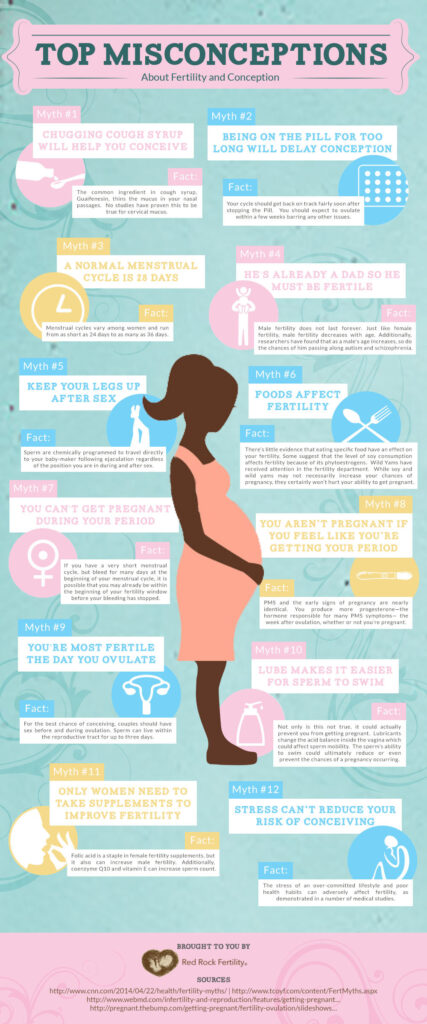
Sometimes the factors affecting your fertility are easy to detect and treat, but in many cases a specific reason for infertility may be difficult to identify.
After a full evaluation, your physician can give you a reasonable idea of your chances of achieving pregnancy with various treatment options.
The choice of which treatment to pursue, if any, is strictly a personal one. Side effects, costs and expected success rates are important factors to consider when choosing a treatment plan.
Treatment Possibilities
There are several treatment options:
Ovarium stimulation and Ovulation induction a hormonal treatment with which the menstrual cycle is regulated and ovulation will be either detected with LH tests or induced with medicines
IUI, Intra Uterine Insemination a procedure in which processed sperm is placed directly high in the uterus.
IVF, In Vitro Fertilisation a much more complicated procedure in which the eggs are collected for the ovaries by needle aspiration, joined with the sperms in an IVF laboratory and finally after some 3-5 the the resulting embryo is placed back into the uterus.
Currently in The Gambia several private clinics offer OVI and IUI. For IVF unfortunately you will still have to travel abroad.
It is helpful when beginning fertility treatment to develop a long-term plan with your doctor so that you will have an idea of how long to pursue a particular treatment before moving on to more aggressive therapy or stopping treatment. Each couple has a unique set of circumstances, and the chances of treatment success vary widely.
Your initial treatment may provide additional answers as to the cause of your infertility. It is therefore important to continually re-evaluate your plan by discussing treatment results with your doctor.
Some General Advise

Lifestyle
For both men and women a healthy lifestyle will contribute to your chances of conceiving.
- Tobacco and alcohol are known to have a negative effect on the fertility of both men and women, as well as on the development of a fetus in pregnancy.
- You have a reduced chance of conceiving if you are very overweight or underweight
- Stress has been known to negatively influence libido in men, and the menstrual cycle in women.
- In general it is advised to keep a healthy diet and have some regular physical exercise.
Psychological Implications
Infertility is a medical condition that has many emotional aspects. Feelings such as anger, sadness, guilt, and anxiety are common and may affect your self-esteem and self-image. You may find it difficult to share your feelings with family and friends, which can lead to isolation. It is important to know that these feelings are normal responses to infertility and are experienced by many couples. Although a doctor will describe various treatments and realistic odds of success with treatments, you must decide how far you will go in your attempts to conceive. Coming to a joint decision with your partner about goals and acceptable therapies is important.
Vaginal douching
Vaginal douching is a commonly used method to wash out the vagina with water or a mixture of water and soap, Dettol or other solutions. Douches that are sold in drugstores and supermarkets contain antiseptics and fragrances.
Besides making them feel fresher, women say they douche to get rid of unpleasant odors, wash away menstrual blood after their period, avoid getting sexually transmitted diseases and prevent a pregnancy after intercourse. However, health experts say douching is not effective for any of these purposes. On the contrary, it can actually increase the risk of infections, pregnancy complications and other health problems.
Regular vaginal douching changes the delicate balance of vaginal flora (organisms that live in the vagina) and acidity in a healthy vagina. These changes can cause overgrowth of bad bacteria which can lead to infection. Douching itself can push existing infections further up into the uterus, fallopian tubes and ovaries. Possible effects of vaginal douching include:
- Vaginal infection (bacterial vaginosis) which can increase the risk of preterm labor and endometriosis
- Pelvic inflammatory disease (PID) An infection of the uterus, fallopian tubes and/or ovaries
- Pregnancy complications Women who douche more than once a week have more difficulty getting pregnant than those who don’t. Douching may also increase the risk of ectopic pregnancy (pregnancy outside the womb) by as much as 76%.
- Cervical cancer Douching at least once a week has been linked to a possible increased chance of developing cervical cancer.
It is strongly advised you should avoid vaginal douching. Having some vaginal discharge is normal however, if you notice a very strong odor, it could be a sign of infection. The acidity of the vagina will naturally control bacteria, and simply washing the outside of the vagina with warm water and mild soap is enough to keep clean.